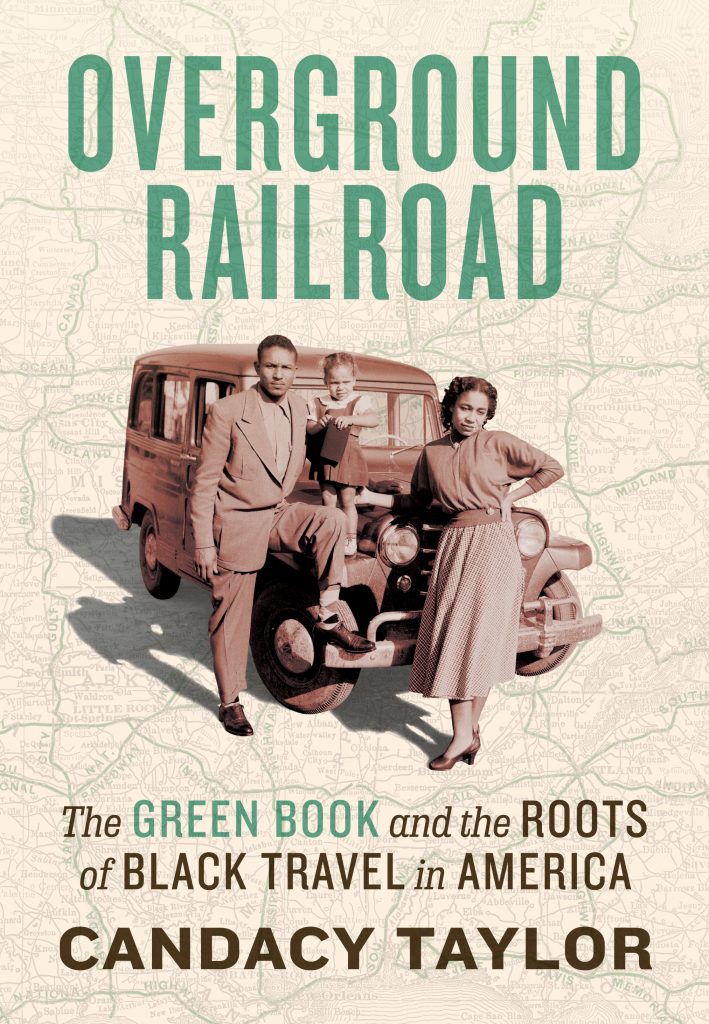 By: Terri Schlichenmeyer
By: Terri Schlichenmeyer
Your tickets have been purchased.
Reservations were made in your name and all that’s left is packing. Yep, you’re heading out for the weekend, a week, a month, gone on the trip of a lifetime and as you’ll see in “Overground Railroad” by Candacy Taylor, it’s a trip your grandparents might’ve been denied.
Ron was just 7 years old when he was told to sit still and be quiet in the backseat of his parent’s car, where he listened as a police officer questioned his father by a country road. Even when he was an old man and stepdad to Candacy Taylor, he remembered the tension coming from the front seat of that car.
Her stepfather’s stories helped Taylor understand many things, including why he and Black folks his age preferred to travel at night, on side roads. At about this same time, Taylor’s white friends began expressing outrage over white supremacists and she replied with facts about the incarceration of black men. To her, the three histories were one: Black people have always been denied equality.
In the twentieth century, that inequality largely resulted from Jim Crow laws which, among other humiliations, allowed restaurants, hotels, and gas stations to refuse service to Black travelers. On the road, brave or desperate African Americans risked violence or even death by testing the laws; in years following the Depression, those laws gave Victor Green an idea.
Green lived in Harlem, worked as a mailman, and saw a future where Black people owned cars (rare, in the 1930s) they could insure (also rare). With help from other mailmen, information on Black-owned businesses that Black travelers could visit was gathered and published in a book that was initially Harlem-centric. Subsequent editions of The Green Book led African American travelers to safe restaurants, hotels, and gas stations across the country.
Says Taylor, Green never made much money from his project, but “his reward was much more valuable… for every business he listed, he may have saved a life.”
As a history of African American travel in the Twentieth Century, “Overground Railroad” is incredible, filled with great continuity and plenty of side-stories to make it come alive. Author Candacy Taylor makes it exquisitely personal with tales from her stepfather and her deep appreciation for all he’d endured, leading to other stories of DWB; how the travel industry foolishly thwarted African American travel and its buying power; how things changed; and the constant reassurance of The Green Book.
That history makes this book incredibly fascinating.
It could’ve been even better, had Taylor stuck with the topic.
Instead, occasionally and from the beginning, mass incarceration and institutional racism are inserted into this narrative on travel. One could perhaps argue that they’re peripherally relevant but, though it’s not overwhelming, that feels like a discussion for a different book.
Still, ignore the distraction. Don’t let it chase you away from this stellar tale, told with detail and an abundance of photos. If you’re looking for a lively, well-rounded history book, “Overground Railroad” is just the ticket.




